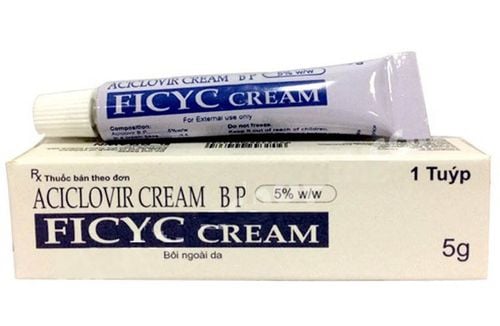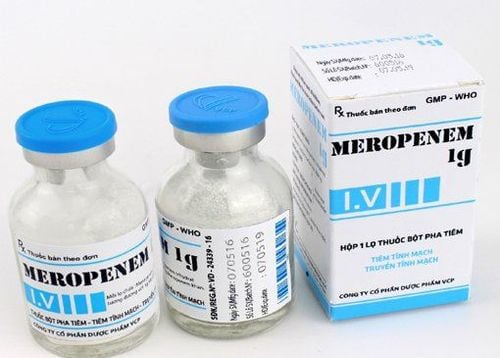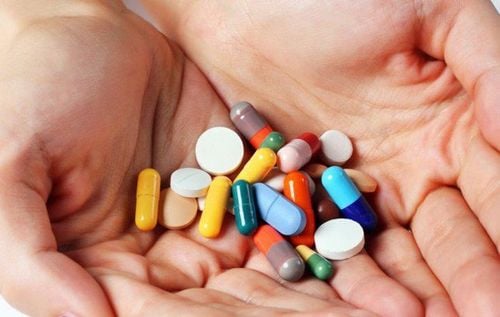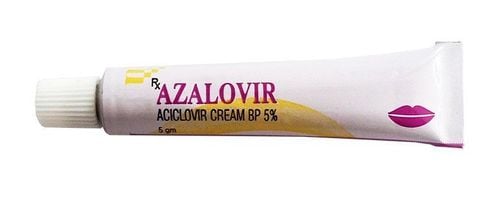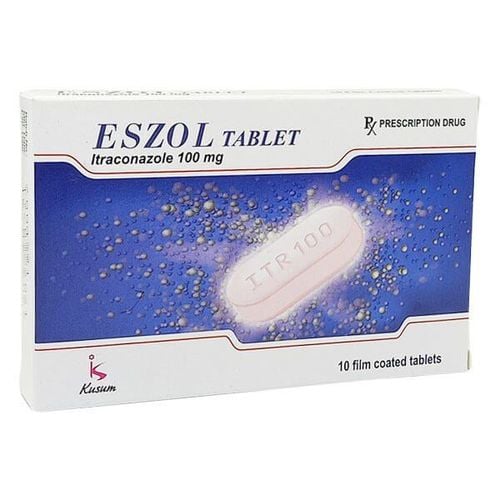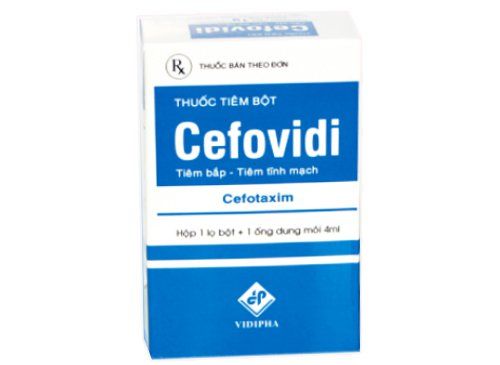This is an automatically translated article.
Cledamed 150 with the main ingredient is Clindamycin, belonging to the group of drugs to treat parasites, antifungals, antivirals, and anti-infectives. Actively learning about the use of Cledamed 150, as well as the dose and how to use it, will help the process of using the drug achieve better results.
1. What is Cledamed 150?
Cledamed 150 is a drug commonly prescribed in cases of prevention of endocarditis, surgical infections or some other common infections.
Name of the drug: Cledamed 150. Drug group: Belongs to the group of drugs, anti-viral, anti-infective, anti-parasitic, anti-fungal. Ingredients: Active ingredient Clindamycin 150mg (in the form of Clindamycin hydrochloride). Dosage form: Hard capsule. Packing: Packed in a box of 2 blisters x 8 tablets, a box of 2 blisters x 10 tablets, a box of 5 blisters x 8 tablets, a box of 5 blisters x 10 tablets, a box of 10 blisters x 8 tablets, a box of 10 blisters x 10 tablets.
2. What effect does Cledamed 150 have?
Clindamycin is known as an antibiotic of the lincosamide group, the main effect is to bind to the 50S subunit of the ribosome, thereby inhibiting bacterial protein synthesis. On the other hand, Clindamycin also helps bacteriostatic at low concentrations and destroys them in high concentrations. The main mechanism of bacterial resistance to clindamycin is mediated by RNA methylation in the 50S subunit of the bacterial ribosome, which is usually plasmid-mediated.Therefore, clindamycin is prescribed by doctors for the following cases:
Prevention of endocarditis or bacterial infection caused by transplant surgery in patients allergic to penicillin or ever long-term treatment with penicillin. Patients with severe respiratory infections caused by Streptococcus, Pneumococcus and Staphylococcus, lung abscess. Intra-abdominal infection. Infection causes the wound to fester (due to surgery or trauma). Blood infection. Postpartum fever caused by genital tract infections, patients with severe infections in the pelvic region and female genital tract such as: nongonococcal tubal abscess, pelvic cellulitis, endometritis, Postoperative vaginal wound infection caused by anaerobic bacteria.
3. Dosage and how to use Cledamed 150
3.1. Dosage For adults: Take 150 - 300mg x 1 time every 6 hours or 450mg x 1 time every 6 hours in case of severe infections. Children: Take 3 - 6mg/kg body weight every 6 hours. Children under 1 year of age or weighing less than 10kg: Use oral solution, orally 37.5mg x 1 time every 6 hours. Intended to prevent endocarditis or infections caused by surgical transplants: 600 mg orally (10 mg/kg for adults), 1 to 2 hours before surgery and 300 mg. 5mg/kg) administered 6 hours after surgery. In case of puerperal fever due to genital infection: If fever but no clinical signs of illness, use Amoxycilin + clavulanic acid. If fever persists for more than 48 hours, use clindamycin 300 mg once every 8 hours (if due to Mycoplasma) until fever is gone or erythromycin 500 mg (if due to Ureaplasma). 3.2. How to use Cledamed 150 tablets are prepared in the form of hard capsules, used by swallowing the tablet whole with a full glass of water, do not chew or crush the tablet.
3.3. Cledamed 150 Overdose: When taking an overdose of Clindamycin, patients may experience symptoms of weakness, convulsions or behavior changes. In this case, it is necessary to immediately contact a doctor, medical staff for timely and safest support and treatment. At that time, the patient will immediately have to empty the stomach by inducing vomiting or gastric lavage. In addition to treating symptoms, it is practically impossible to remove Clindamycin by hemodialysis.
Missed dose: If you forget to take a dose of medicine compared to the planned dose, the patient should take the supplement as soon as he remembers (usually within 1-2 hours). However, if it is almost time for the next dose to be remembered, skip the missed dose and take the medicine as originally planned.
4. Note when using Cledamed 150
4.1. Contraindications In case the patient is hypersensitive to clindamycin or lincomycin or has diarrhea, the drug should not be used.
Normally, patients with allergies or hypersensitivity to any active ingredients or excipients in the drug should not use the drug. Other cases are clearly specified in the instruction sheet or doctor's prescription. Contraindications for Cledamed 150 are absolute contraindications, not for any reason that can be ignored and flexible use of the drug.
4.2. Side effects Clindamycin has a high likelihood of leading to pseudomembranous colitis, which is caused by an excessive increase in the toxin of Clostridium difficile. This condition occurs when bacteria normally present in the intestinal tract are destroyed by clindamycin (usually occurs in elderly patients or patients with impaired renal function).
In some patients (0.1 - 10%), pseudomembranous colitis can develop very seriously, even leading to death. Pseudomembranous colitis is characterized by the following symptoms: Fever, abdominal pain, diarrhea, mucus and blood in the stool, rectal examination reveals yellowish-white patches on the colonic mucosa.
In addition, Clindamycin can also cause some other undesirable effects such as:
Common: Nausea, vomiting, abdominal pain, indigestion, diarrhea due to clostridium difficile. Uncommon: Pruritus, urticaria, local reactions after intramuscular injection, thrombophlebitis after intravenous administration. Rare: Anaphylaxis, pseudomembranous colitis, reversible hepatic transaminase elevations, esophagitis, eosinophilia, reversible neutropenia. Other undesirable effects reported with the use of topical preparations containing Clindamycin include: Contact dermatitis, Gram-negative cystitis, skin irritation, oily skin, sensitive skin, eyestrain, digestive disorders.
Above is information about Cledamed 150's uses as well as ingredients, usage, dosage and special attention. To ensure the effectiveness and safety of using the drug, patients should use it according to the prescription and guidance of a qualified doctor.
Please dial HOTLINE for more information or register for an appointment HERE. Download MyVinmec app to make appointments faster and to manage your bookings easily.




